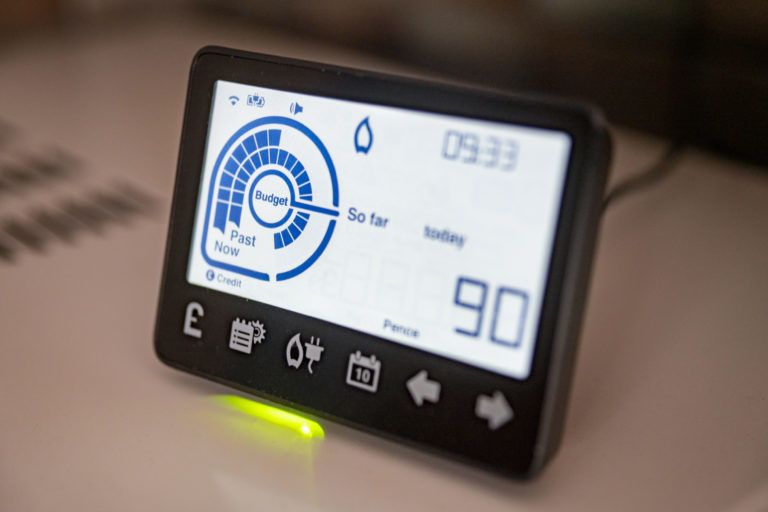
In recent news, more than half a million households in the UK will soon be required to install smart meters or face the consequences of higher energy bills. This move is part of the UK’s ongoing efforts to modernize the energy system and ensure a more sustainable and efficient use of resources. In this blog, we’ll dive into the key details surrounding this significant development, its potential impact on consumers, and why smart meters are becoming an essential part of the energy landscape.
What Are Smart Meters and How Do They Work?
Before we explore the specifics of the UK’s smart meter rollout, it’s important to understand what a smart meter is and how it works. Smart meters are digital devices that measure electricity and gas usage in real-time, providing both consumers and suppliers with accurate and up-to-date data. Unlike traditional meters, smart meters automatically send readings to energy companies, eliminating the need for manual meter readings and reducing the chances of estimated bills.
Why Are Half a Million UK Households Being Forced to Install Smart Meters?
As part of the UK government’s commitment to improving energy efficiency and reducing carbon emissions, more households are being urged to switch to smart meters. The plan to make smart meters mandatory for over half a million households is part of the larger Smart Metering Implementation Programme (SMIP). The new regulations aim to ensure that as many homes as possible benefit from the advantages of smart meters, including more accurate billing, improved energy usage insights, and easier switching between energy providers.
This mandatory rollout, however, is not without controversy. Many consumers have expressed concerns over the potential for higher bills if they do not comply with the installation requirements. Those who refuse or delay installing smart meters could face significantly higher energy costs.

How Can Smart Meters Help Consumers Save Money?
One of the primary advantages of installing a smart meter is the ability to monitor your energy usage in real-time. With smart meters, consumers gain detailed insights into how much energy they are using at different times of the day. This allows them to make informed decisions about when to use appliances and how to reduce unnecessary consumption.
Some of the benefits of smart meters include:
- Accurate Billing: No more estimated bills—smart meters provide precise, real-time data for energy consumption.
- Energy Efficiency: Consumers can track energy usage patterns and adjust their habits to save money.
- Switching Energy Suppliers Made Easy: With smart meters, switching energy providers is simpler, as suppliers can access accurate data about your usage.
Risks of Not Installing a Smart Meter in the UK
Failure to install a smart meter in the UK could lead to a range of negative outcomes for consumers. With energy companies shifting towards this technology, households that refuse to comply with the installation of smart meters may face higher energy bills. This is because energy suppliers may apply a “non-smart” tariff, which is typically more expensive than those offered to customers with smart meters.
In addition, not having a smart meter could limit your access to time-of-use tariffs, which can help you save money by using energy during off-peak hours. Without a smart meter, you may miss out on the financial benefits of such tariffs.
Government Plans and Timelines for Smart Meter Rollout
The UK government has set an ambitious target for the installation of smart meters in every home by the year 2030. However, this latest mandate affects over half a million households that must now take immediate action to install a smart meter to avoid higher costs.
The installation process is generally straightforward, and consumers should not have to pay for the meter itself. Instead, energy companies will handle the cost of installation and the technology needed to support the smart meter network.
Consumer Concerns: Privacy and Security of Smart Meters
While the UK’s push for smart meters aims to improve the efficiency of the national grid, there are also concerns about privacy and data security. Since smart meters collect data on energy usage patterns, many people worry about how this data will be used and whether it could be accessed by unauthorized third parties.
The government and energy suppliers have assured consumers that the data collected by smart meters is encrypted and used only for the purpose of billing and improving energy services. However, it remains a topic of debate as some individuals fear their personal energy usage could be exploited or misused.
The Future of Smart Meters in the UK Energy Market
The installation of smart meters is just the beginning of a larger transformation in the UK’s energy market. As the country strives to meet its sustainability goals and reduce its carbon footprint, smart meters will play a critical role in enabling consumers to adopt more energy-efficient habits. Over time, it’s expected that the use of smart meters will lead to smarter energy management systems, better integration of renewable energy sources, and a more resilient energy grid.
Key Takeaways: Smart Meter Benefits, Costs, and Consumer Impact
The UK’s push for smart meter installations affects over half a million households, with many more expected to follow. Smart meters provide numerous advantages, such as more accurate billing, better energy management, and the potential to save money. However, the mandatory rollout also raises questions about privacy, security, and potential higher costs for consumers who refuse to comply.
As the UK continues its drive to make energy consumption smarter and more sustainable, it’s essential for consumers to stay informed about how these changes will affect their homes and their wallets. For those who haven’t already installed a smart meter, now is the time to take action before the looming deadline arrives.




